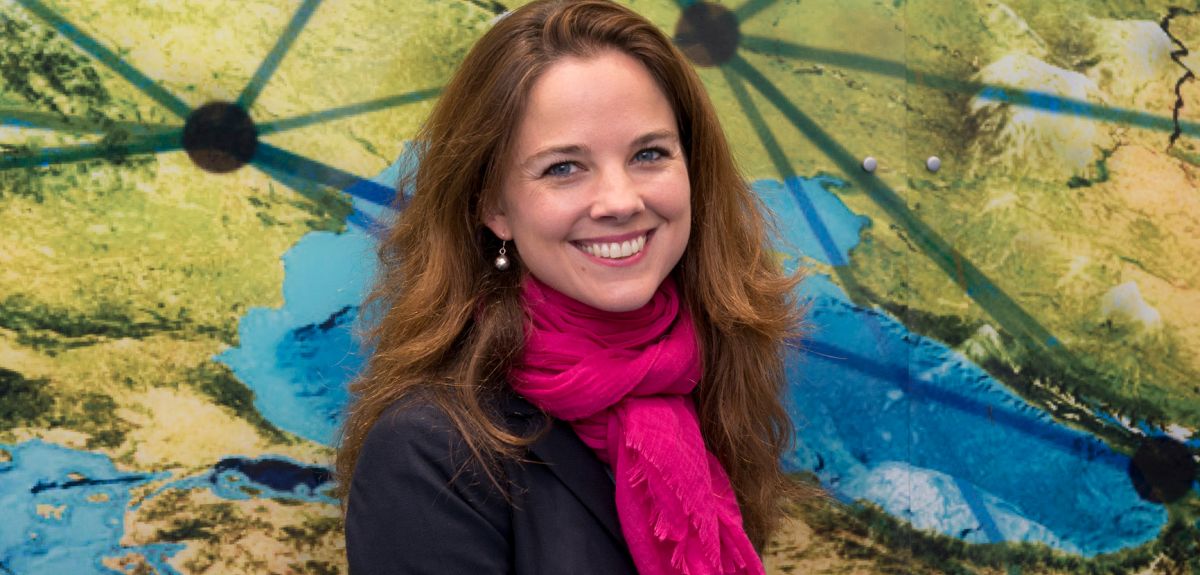
Social geographer Jane Dyson awarded for Outstanding International Impact
Oxford researcher Dr Jane Dyson has received an ESRC (Economic and Social Research Council) prize for Outstanding International Impact. Dr Oliver Owen, a Research Fellow in Oxford Department of International Development, was awarded second prize for Outstanding Early Career Impact.
Dr Dyson's award follows the making of her film, 'Lifelines', which is based on her research with north Indian youth. The ESRC said her film has become an important educational tool, countering negative stereotypes and informing society about a poorly understood section of the world’s population.
Dr Dyson’s documentary on the challenges facing young people in the Indian Himalayas has reached school children, students and policymakers worldwide. The film has been viewed over 14,000 times in 126 countries and has been an official selection at the Vancouver International Mountain Film Festival (2015), Kathmandu International Film Festival (2014) and the Kendal Mountain Festival (2014) amongst others. Being the subject of the film ,'Lifelines', has transformed the life Makar Singh, who now aims to train with other north Indian youth to produce their own documentaries on young people’s social and political action. The accompanying teaching pack now features as a Welsh national curriculum resource and is used in several universities in the US, Canada, UK and Australia. A US business entrepreneur was also so inspired by the film that he committed funding for a new educational NGO in the village of Bemni, the location of the film.
For 12 years, Dr Dyson of the University's School of Geography and the Environment has been conducting research on young people, education and unemployment in north India, where one in three high school graduates under the age of 29 is unemployed. A key aim of the ESRC-funded project is to show the creative ways in which youth are managing these economic uncertainties through, for example, helping their communities.
Jane took filmmaker Ross Harrison to the village to chart the changes. The film tells the story of 32-year-old Makar who, like many of his friends, tries to balance traditional work alongside his efforts to get ahead in the modern world. ''The film is informing society about a section of the world’s population that is poorly understood,' said Dr Dyson. 'It has found an audience that we could never have dreamed of reaching with just the written word.'
Dr Oliver Owen, a Research Fellow in the Oxford Department of International Development, was awarded second prize for Outstanding Early Career Impact in the ESRC Celebrating Impact Prize 2015. The ESRC said his five-year fieldwork study within the Nigerian Police Force is providing unique research evidence for reforms aimed at improving police performance, effectiveness and accountability.
'Public perceptions of the Nigerian police are largely negative and coloured by fears of police corruption and inertia,' Dr Owen said. 'However, research on the actual conditions and factors affecting the Nigerian Police Force, its personnel and their performance is scant, and missing the voices of Nigeria's 377,000 police officers. My research approach offers the chance to put those bottom-up perspectives back into the picture.'
By working closely with more than 130 police officers based in north-central Nigeria, Dr Owen has explored the world of policing from the officers' points of view, gaining unique insight into the problems they face and the potential for policing reforms.
 Statins do not cause the majority of side effects listed in package leaflets
Statins do not cause the majority of side effects listed in package leaflets
 Activism proves a stimulating topic at Sheldonian Series event
Activism proves a stimulating topic at Sheldonian Series event
 New Oxford-led initiative launches to train future leaders in transformative technologies for pharmaceutical research
New Oxford-led initiative launches to train future leaders in transformative technologies for pharmaceutical research